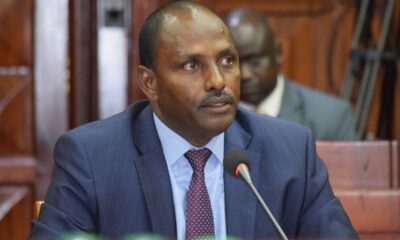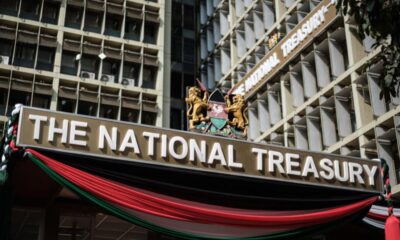Economy
Controversial UAE Firm DP World Seeks To Develop Dongo Kundu SEZ
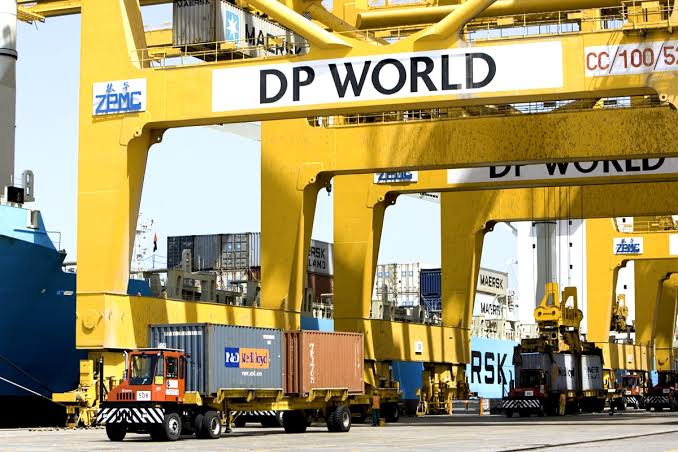
After failing to reach an agreement to develop three commercial ports with the Kenyatta administration, Emirati firm Dubai Port World (DP World) has now expressed interest in developing the Dongo Kundu Special Economic Zone (SEZ) in Mombasa.
Last year, DP World sought concession licences to run and operate various infrastructure components in Mombasa, Lamu and Kisumu ports. The company is the latest to express an interest in developing a section of the Dongo Kundu SEZ.
Kenya Ports Authority (KPA) said the project has attracted interest from many companies as it works around the clock to deliver within the project one year.
Acting KPA Managing Director John Mwangemi recently met with a delegation from DP World led by Head of Project Portfolio Group Planning and Project Management Haism Ezz Elarab.
The team, according to KPA, is conducting a feasibility study on the motor vehicle import business for local, transit and transhipment markets.
DP World came into the limelight early last year after retired President Uhuru Kenyatta’s administration engaged it to upgrade facilities at Mombasa, Lamu and Kisumu ports.
According to documents dated January 2022, Kenya was considering signing a concession agreement with DP World to undertake the development, operation, management and expansion of transport logistics services in the country on various components.
If the agreement was implemented, DP World would have been given the power to run at least four berths at the port of Mombasa, the three Lamu Port completed berths and three special economic zones. But in July the same year, the government tore up the deal. During the campaigns, then Deputy President William Rutoaccused his boss, Mr Kenyatta, of trying to sell the port to foreign entities.
The Dongo Kundu SEZ project includes the creation of a free trade zone, a free port, a logistics hub, and an industrial zone. The project is part of Kenya’s industrialisation plan, spanning 10 years and is boosted by the revised draft SEZ Regulations (2019) that offer incentives to companies operating in the zone.
Controversies
In February, 2006, an announcement by DP World that it was taking over management of six US ports in a $3.7 billion (Sh436 billion) deal kicked up controversy in Congress, mainly on security considerations. Under pressure and public scrutiny, Dubai Ports dropped the deal.
In 2012, Djibouti filed an arbitration case in London against DP World, claiming that the firm bribed an official to secure concession to run Dolareh – the largest container terminal in Africa.
Though Djibouti lost, the case revealed insights into dealings between corrupt elites and global concession operators.
Dubai World has displayed dubious tactics since first expressing interest in a port concession in Kenya in 2006.
Political fortunes
American economic historian Fred Cooper described the African state as the “gate keeper” where elites are perpetually fighting to earn corruptly acquired money through control of ports, customs centres and other interfaces between their countries and the rest of the world.
The DP World saga appears to be the latest in the scramble by corrupt elites to control the gate. The scramble has assumed global dimensions in Kenya in the past one year.
International ports and transport logistics operators are involved in battles over ownership and control of port concessions or control over profitable projects involving development and building storage and logistics facilities along main transport corridors. It is a vicious fight where only players enjoying patronage of powerful godfathers succeed.
Public litigation actors have already at the behest of a global shipping group lodged a legal battle where they have injuncted a plan by the government to shift control and ownership of the Japanese-built ultra-modern second container terminal to a consortium compromising the state-owned Kenya National Shipping Lines (KNSL) and Portuguese player – Mediterranean Shipping Lines (MSL).
The timing of the case, come just as the government had concluded plans to hand over management of the terminal to an entity effectively under the control of MSL, and would appear to suggest shipping lines opposed to this deal have calculated that they would rather have the deal postponed until after the August elections.
Political undercurrents
They hedged their bets on the possibility that the new government( Ruto’s) would be inclined to block the deal.
Dubai Ports first entered the Kenyan fray in 2014 when the government floated an international competitive tender to concession the second container terminal in Mombasa.
Port operators from China, Japan, Singapore, Netherlands and several other countries participated in the tender.
The Chinese group, PSA International, which had partnered with local firm, Multiple Hauliers, had the highest marks, with DP World emerging second.
The process was then cancelled amid political undercurrents. Having lost in the open tender, DP World devised another approach.
In October 2016, the UAE quietly signed a bilateral agreement where it committed to lend Kenya $275 million (Sh32.4 billion) for expansion of the second container terminal on condition that Kenya allowed DP World to take control of the terminal.
Two months later, the UAE ambassador wrote to the National Treasury.
What happened next is still difficult to decipher. It seems political fortunes of DP World and its backers took a nosedive. Transferring the second terminal to DP World no longer enjoyed the support of the political elite.
In August 2018, the Cabinet decided to transfer the operations and management to the State-owned and almost moribund KSNL in a deal that included a new shareholding arrangement between that parastatal with MSL.
Effectively, the power and control of the terminal had been transferred to the Portuguese firm.
Kenya Insights allows guest blogging, if you want to be published on Kenya’s most authoritative and accurate blog, have an expose, news TIPS, story angles, human interest stories, drop us an email on [email protected] or via Telegram
-

 Grapevine2 weeks ago
Grapevine2 weeks agoA UN Director Based in Nairobi Was Deep in an Intimate Friendship With Epstein — He Even Sent Her a Sex Toy
-
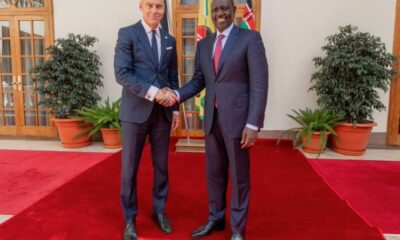
 Development3 days ago
Development3 days agoKenya Strips Dutch Climate Body of Diplomatic Immunity Amid Donor Fraud Scandal and Allegations of Executive Capture
-

 Investigations1 week ago
Investigations1 week agoHow Mexico Drug Lord’s Girlfriend Gave Him Away
-

 Business2 weeks ago
Business2 weeks agoSafaricom Faces Avalanche of Lawsuits Over Data Privacy as Acquitted Student Demands Sh200mn Compensation in 48 Hours
-
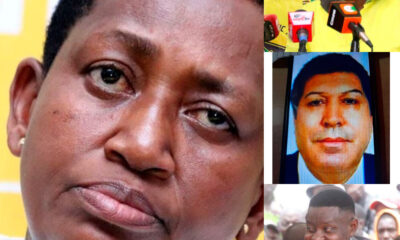
 Investigations1 week ago
Investigations1 week agoHow Close Ruto Allies Make Billions From Affordable Housing Deals
-

 Entertainment2 weeks ago
Entertainment2 weeks agoKRA Comes for Kenyan Prince After He Casually Counted Millions on Camera
-

 Politics2 weeks ago
Politics2 weeks agoI Personally Paid For Your Ticket To Visit Raila in India, Oketch Salah Silences Ruth Odinga After Claiming She Barely Knew Him
-

 Business1 week ago
Business1 week agoAmerican Investor Claims He Was Scammed Sh225 Million in 88 Nairobi Real Estate Deal

